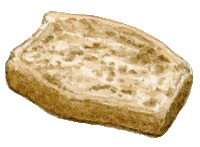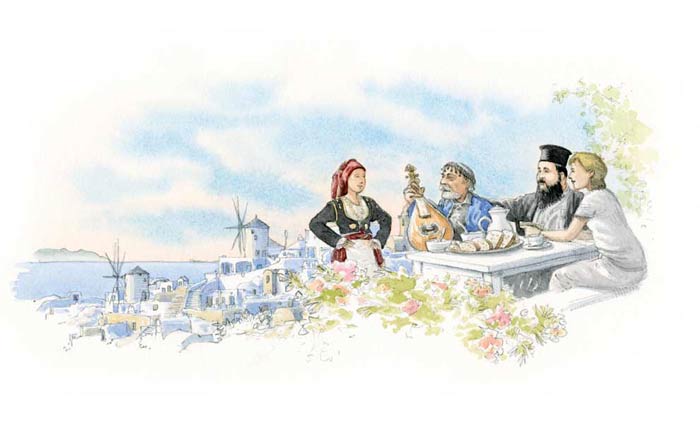Etazymo

Form: Dry rusk
Country of origin: Greece
What distinguishes it from other methods of bread making: Cooked twice
Category of bread: (4) Similar to Swedish knäckebröd or Norwegian flatbrød, eptazymo is a dry rusk valued by those who do not have access to fresh bread
Particularity: The original recipe is made using wheat flour and chickpea flour
Ingredients: Chickpea flour; wheat flour; fat; baker’s yeast; cinnamon; sesame; sale

Greece
It was obviously an ocean-faring people who invented this twice-cooked bread. Homer differentiated the barbarians, who only ate broth, from the bread eaters, who couldn’t go a day without eating fresh bread, and for whom going without was a sort of punishment. In Greece therefore, the word paximadia designated a wide range of twice-cooked breads brought back to life, so to speak, by soaking them in all sorts of brews. These breads can also be eaten like the Swedish crisp bread we find in supermarkets today, in both dry and soft form, spreading on butter or jam or other condiments, or any other combination. Paximadi, the singular of paximadia, comes from the name of a Roman citizen, Paxamux, author of a book on cuisine, which standardized the recipe for twice-cooked breads (dipyros artos).
Crete, more than any other island, contributed to the glory of paximadia, prepared with barley, wheat, corn or rye cultivated in the Messara Plain. Even so, out of this wide array of twice-cooked breads arises a star, eptazymo, which is not only twice-cooked, but kneaded seven times. It is made from wheat flour and chickpea flour, and sometimes only chickpea flour, using a chickpea sourdough starter.
This recipe must surely date back to quite ancient times, when humans’ existence was limited by an almost unlimited number of superstitions. Women, who were in charge of making bread, had to do it in the greatest secrecy: not revealing their schedule; not talking to neighbors about their fear of not kneading it seven times and drawing the attention of the evil eye. As a result, bread making was a long affair, and was carried out between midnight and dawn so as to be ready for the morning. These crispy rusks are spicy, full of the aroma of cinnamon, and livened up with sesame seeds. The hard work and precautions taken are therefore fully justified.

